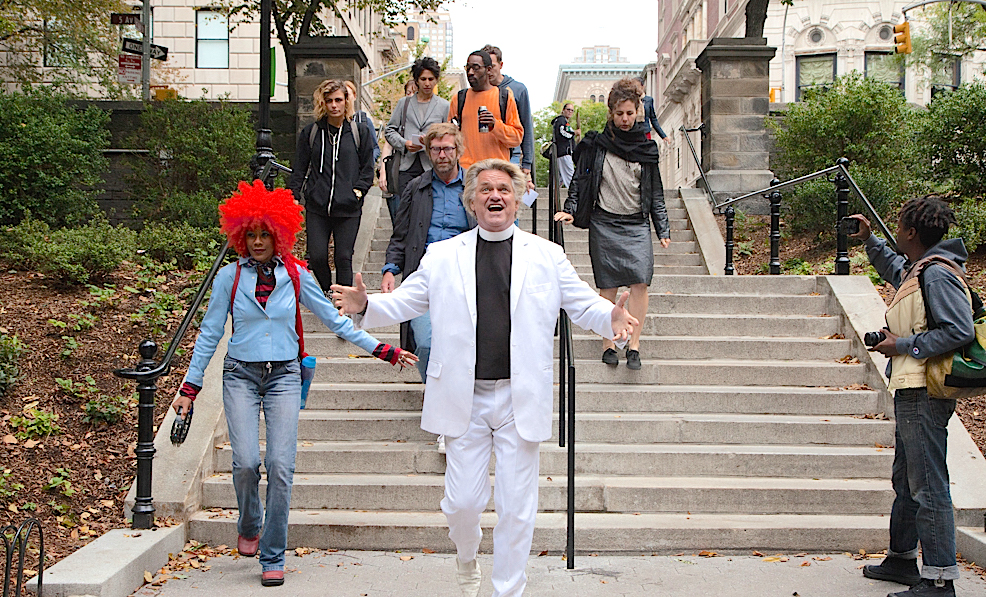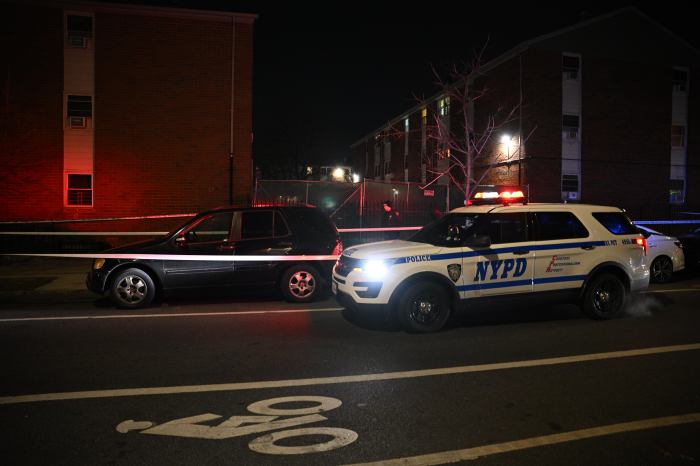
BY COLIN MIXSON | As part of their efforts to spread the word on the devil’s ill of cancer-causing herbicides, the God-fearing, music-based anti-consumerism group Reverend Billy Talen and the Stop Shopping Choir have submitted several Freedom of Information Law requests, calling on the city to divulge information on when and where it sprays the Monsanto company’s glyphosate-based Roundup herbicide.
The Parks Department was fairly quick to spill the beans on where it spreads weed killer. But, five months after the group’s initial request, various park conservancies — nonprofit organizations that raise money for and maintain parks throughout the city — have yet to fess up, raising questions of accountability when it comes to the semiprivate caretakers of New York City’s cherished green spaces.
“At this point, we can draw no other conclusion,” said Reverend Billy, real name Bill Talen. “We must believe that the privatization of the parks alters the reports that come to the public about the spraying of toxins. The parks have the same name, the same trees, the same bushes and flowers, and invite the same mixture of locals and tourists into those parks. But because of some kind of manipulation of the governments of those parks, the information of what is coming into our bodies, which may threaten our bodies, is not forthcoming.”
Glyphosate herbicides have been banned in cities across the country, including Chicago and Seattle, following studies that linked the noxious chemical to cancer and other diseases, as well as birth defects. Yet the substance is routinely sprayed in parks throughout New York City.
As part of their anti-consumerist agenda, Reverend Billy and the Stop Shopping Choir have taken aim at Monsanto, the agricultural and biotechnology giant responsible for genetically modified foods, along with the herbicides and pesticides, such as Roundup, that protect them.
Toward that end, the reverend has devised an interactive map on his Web site, revbilly.com/map, which, with blood-red skull and crossbones, points out where the city has sprayed the glyphosate-based weed killer.
On the map, the outer boroughs are flush with hundreds of the Jolly Roger-esque markings. But the warning symbols are conspicuously absent form the Big Apple, which only features a handful of the ominous markings.
And that’s because many of the major parks located in Manhattan, such as Central Park, The Battery and Riverside Park, are operated by conservancies, and none of those mentioned have provided the information that Talen and his flock requested, saying only that the request is “under review,” according to the preacher of the gospel of anti-consumerism.
“All we know is that the conservancies are not giving us that info,” he said. “Their official stance is they’re still under review.”
Talen, along with his director of performances Savitri D and music director Nehemiah Luckett, sent their initial FOIL request to the Parks Department in September last year, which yielded a response from the city agency in December.
When the conservancies didn’t provide the requested information, however, Talen and Co. submitted a second request in February, which again, yielded the reply of “this request is under review,” he said.
A Parks spokesperson said that Talen’s second FOIL would be answered in late May. Although, she added, due to the specificity of the submission, only the Central Park Conservancy and the Prospect Park Alliance in Brooklyn would be providing information.
The spokesperson, however, could not provide any information for why the initial request was not answered by the conservancies.
In city parks, glyphosate, the active ingredient in Roundup, is applied by experts licensed by the state Department of Environmental Conservation, or their apprentices.
Both the U.S. Environmental Protection Agency and D.E.C. regulate such products and their use, and they approve the use of Roundup in public parks.
From 2012 to 2013, there was a 47 percent decrease in the use of glyphosate products by city agencies.
Recent studies, including research published in 2014 by Dr. Stephanie Seneff, a scientist at M.I.T., demonstrated how glyphosate residues, especially if found in common food products, “enhance the damaging effects of other food-borne chemical residues and toxins in the environment to disrupt normal body functions and induce disease,” according to a Mercola.com report.



































